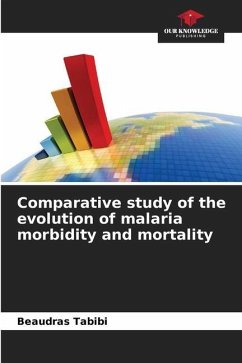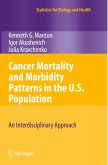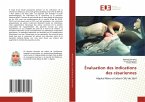Plasmodium falciparum malaria, the most prevalent and potentially deadly plasmodium, is a disease that can be both treated and prevented. This requires adequate funding. Bilateral and multilateral funding has increased 20-fold globally since 2000. The DRC has made malaria a priority by setting up a National Malaria Control Program with the objective of coordinating malaria control activities and contributing to the reduction of malaria-related morbidity and mortality through promotional, preventive, curative and operational research activities. As malaria is a problem that continues to kill children as well as adults, it was essential to make a contribution to science by monitoring the progression of cases and deaths over 5 years (2011-2015) in two health zones of the city province of Kinshasa in relation to their location (urban or peri-urban). As a preventive measure, this kind of analysis can lead to the development of new strategies.
Bitte wählen Sie Ihr Anliegen aus.
Rechnungen
Retourenschein anfordern
Bestellstatus
Storno








